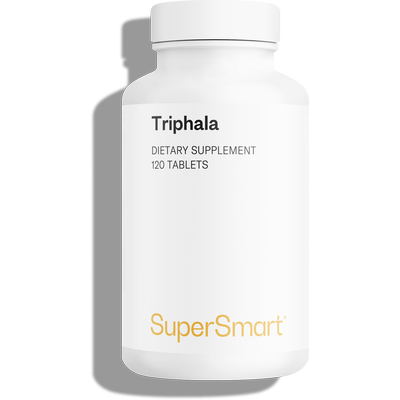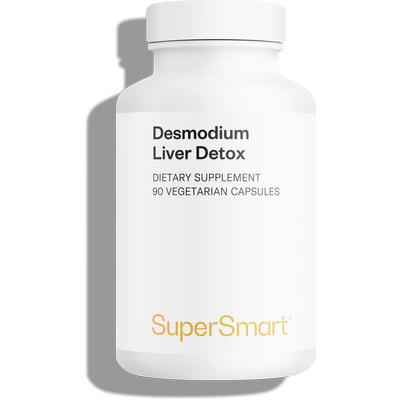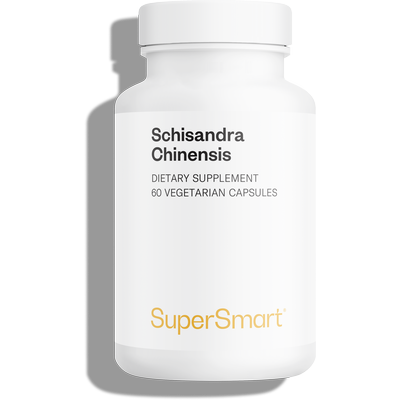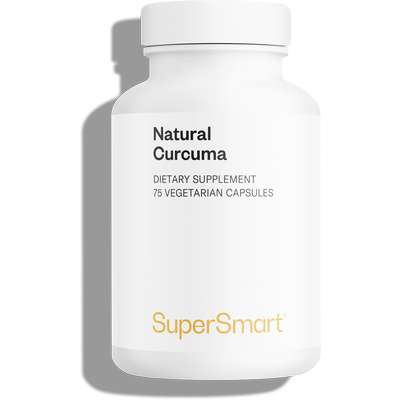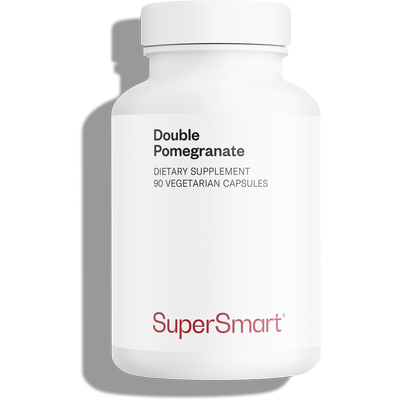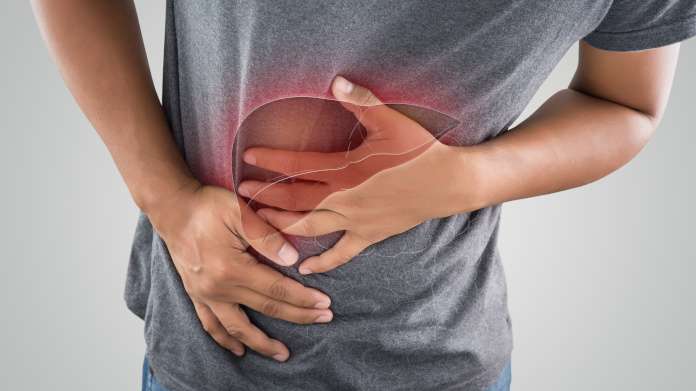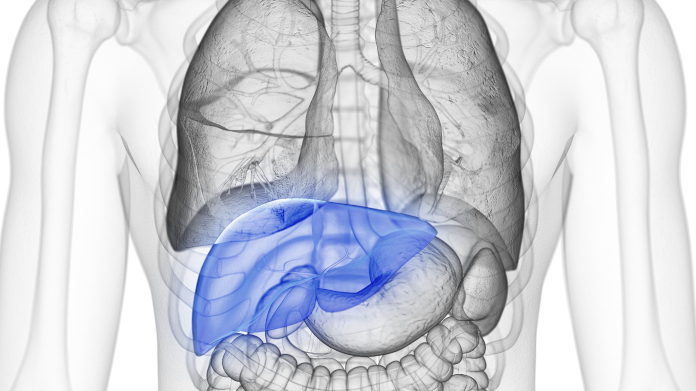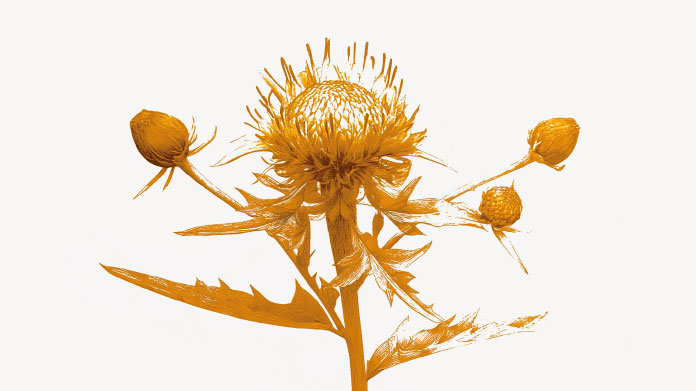Study suggests powerful liver benefits from polyphenols
A recent study reveals that a high intake of polyphenols could be associated with a reduced risk of liver disorders. Zoom in on these plant compounds with antioxidant effects and their potential impact on liver health.

The liver: a vital and fragile organ
A veritable ‘chemical factory’ for the body, the liver performs a number of essential functions: it detoxifies the blood, stores nutrients (glucose, vitamins), synthesises proteins and aids digestion by producing bile.
However, this organ can be put under immense strain. One of the most common disorders is hepatic steatosis, also known as 'fatty liver'. It is characterised by an excessive accumulation of fat in the liver cells.
While steatosis can be linked to excessive alcohol consumption (alcoholic steatosis), it can also affect people who do not drink.
Most often, it occurs in people who are too sedentary, overweight or suffering from a metabolic imbalance. This is known as non-alcoholic fatty liver.
If left untreated, this condition can develop into more serious complications such as fibrosis, cirrhosis or disturbances to the general metabolism.
Preserving liver health is therefore a key factor in staying fit and healthy.
Polyphenols and liver health: what a recent study reveals
A study published in Scientific Reports in March 2024 analysed the link between polyphenol intake and the risk of non-alcoholic fatty liver disease (NAFLD) (1).
The researchers observed that individuals with a higher intake of polyphenols had a significantly reduced risk of developing steatosis.
These results suggest that these plant compounds, known for their antioxidant and anti-inflammatory properties, could play a protective role for the liver.
Among the mechanisms involved:
- Polyphenols could help reduce oxidative stress in liver cells, a key factor in the progression of steatosis (2).
- They may also modulate the inflammatory response by regulating some cytokines and pro-inflammatory enzymes (3).
- Certain polyphenols, such as flavonoids, could promote lipolysis and limit the accumulation of fat in the liver (4).
Although these results are encouraging, they need to be qualified.
Further studies are needed to confirm the impact of polyphenols in reducing the risk of non-alcoholic fatty liver disease, and to determine optimal doses.
The point here is not to regard polyphenols as 'miracle cures', but rather as support for liver protection.
How can we increase our intake of polyphenols?
Combined with a healthy lifestyle and a balanced diet, polyphenols could become valuable allies in liver health. And while they are easily found in the diet, targeted food supplements can also be considered.
Eat foods rich in polyphenols
To include more polyphenols in your diet, try:
- apples and pears, lychees, grapes, stone fruit, citrus fruit, berries, oilseeds
- artichokes, parsley, Brussels sprouts, aromatic herbs
- tea, dark chocolate (minimum 70%) and spices such as turmeric and cloves
These varied foods provide several types of polyphenols (flavonoids, lignans, resveratrol, phenolic acids, etc.), with synergistic effects on the body.
Targeted supplements to boost intake
In certain situations (such as an unbalanced diet), dietary supplements can be used to optimise polyphenol intake.
Punicalagins: powerful polyphenols in pomegranates
Pomegranates are a particularly rich source of punicalagins, polyphenols with powerful antioxidant properties.
Studies show that these compounds help neutralise free radicals and protect cells from oxidative damage (5).
Several studies also suggest that they may support liver function by limiting inflammation and promoting the elimination of toxins (6).
Including pomegranate in the diet or in the form of food supplements could therefore be a good aid for liver health and vitality.
![]() Discover Double Pomegranate, a pomegranate extract (Punica granatum) particularly rich in powerful polyphenolic antioxidants (punicalagin, punicalin and ellagic acid).
Discover Double Pomegranate, a pomegranate extract (Punica granatum) particularly rich in powerful polyphenolic antioxidants (punicalagin, punicalin and ellagic acid).
Curcuminoids: the active molecules in turmeric
A golden spice known for thousands of years, turmeric owes its benefits to curcuminoids, active molecules with antioxidant and anti-inflammatory effects.
These compounds have been studied for their ability to support liver health and reduce the impact of metabolic stress (7).
They may also help to limit the formation of fatty deposits in the liver (8).
For optimum support, highly assimilable forms of curcumin are now available in supplement form.
![]() Discover Natural Curcuma, a superior extract of curcuma standardised in curcuminoids, for daily liver support.
Discover Natural Curcuma, a superior extract of curcuma standardised in curcuminoids, for daily liver support.
Schisandra chinensis: an adaptogenic plant that protects the liver
Schisandra chinensis is an adaptogenic plant in Chinese pharmacopoeia, rich in lignans with powerful antioxidant effects.
It is reputed to support liver cell regeneration and improve the liver's resistance to toxins and oxidative stress (9).
Traditionally used in Oriental medicine to promote energy and detoxification, it is a precious ally for overall well-being.
![]() Discover Schisandra Chinensis, a dietary supplement dedicated to liver protection.
Discover Schisandra Chinensis, a dietary supplement dedicated to liver protection.
Triphala: an Ayurvedic formula with powerful polyphenols
A complex of Ayurvedic berries (Amla, Haritaki and Bibhitaki), Triphala is a remarkable source of antioxidant polyphenols.
In Ayurveda, it is used to support digestion, promote the elimination of toxins and strengthen liver function (10).
Its active compounds make it an ideal solution for maintaining digestive wellbeing and liver vitality.
![]() Discover Triphala, an Ayurvedic food supplement made from three fruits: Harada (Terminalia chebula), Amla (Emblica officinalis) and Behada (Terminalia belerica). It helps to create a favourable biochemical environment in the intestine and throughout the body, supporting the liver's natural detoxification mechanisms.
Discover Triphala, an Ayurvedic food supplement made from three fruits: Harada (Terminalia chebula), Amla (Emblica officinalis) and Behada (Terminalia belerica). It helps to create a favourable biochemical environment in the intestine and throughout the body, supporting the liver's natural detoxification mechanisms.
Desmodium: a classic in liver detox cures
Although Desmodium is not a major source of polyphenols, this African plant is widely recognised for supporting liver function.
It is traditionally used to support detoxification processes and help the liver cope with metabolic overload.
![]() Discover Desmodium Liver Detox, an essential complement to liver detox programmes.
Discover Desmodium Liver Detox, an essential complement to liver detox programmes.
SUPERSMART ADVICE
References
- Rahimlou M, Baghdadi G, Khodi A, Rahimi Z, Saki N, Banaei Jahromi N, Cheraghian B, Tavasolian R, Hosseini SA. Polyphenol consumption and Nonalcoholic fatty liver disease risk in adults. Sci Rep. 2024 Mar 21;14(1):6752. doi: 10.1038/s41598-024-57416-0. PMID: 38514756; PMCID: PMC10957908.
- Gao H, Xue Y, Wu L, Huo J, Pang Y, Chen J, Gao Q. Protective Effect of Lycium ruthenicum Polyphenols on Oxidative Stress against Acrylamide Induced Liver Injury in Rats. Molecules. 2022 Jun 25;27(13):4100. doi: 10.3390/molecules27134100. PMID: 35807346; PMCID: PMC9267984.
- Yahfoufi N, Alsadi N, Jambi M, Matar C. The Immunomodulatory and Anti-Inflammatory Role of Polyphenols. Nutrients. 2018 Nov 2;10(11):1618. doi: 10.3390/nu10111618. PMID: 30400131; PMCID: PMC6266803.
- Wang S, Moustaid-Moussa N, Chen L, Mo H, Shastri A, Su R, Bapat P, Kwun I, Shen CL. Novel insights of dietary polyphenols and obesity. J Nutr Biochem. 2014 Jan;25(1):1-18. doi: 10.1016/j.jnutbio.2013.09.001. PMID: 24314860; PMCID: PMC3926750.
- Aladaileh SH, Al-Swailmi FK, Abukhalil MH, Ahmeda AF, Mahmoud AM. Life Sci. 2021 Dec 1;286:120071. doi: 10.1016/j.lfs.2021.120071. Epub 2021 Oct 21. PMID: 34688692.
- Zhang Y, Tan X, Cao Y, An X, Chen J, Yang L. Punicalagin Protects against Diabetic Liver Injury by Upregulating Mitophagy and Antioxidant Enzyme Activities. Nutrients. 2022 Jul 6;14(14):2782. doi: 10.3390/nu14142782. PMID: 35889739; PMCID: PMC9319303.
- Musso G, Pinach S, Mariano F, Saba F, De Michieli F, Framarin L, Berrutti M, Paschetta E, Parente R, Lizet Castillo Y, Leone N, Castellino F, Cassader M, Gambino R. Effect of phospholipid curcumin Meriva on liver histology and kidney disease in nonalcoholic steatohepatitis: A randomized, double-blind, placebo-controlled trial. Hepatology. 2025 Feb 1;81(2):560-575. doi: 10.1097/HEP.0000000000000937. Epub 2024 May 28. PMID: 38809154.
- Asai A, Miyazawa T. Dietary curcuminoids prevent high-fat diet-induced lipid accumulation in rat liver and epididymal adipose tissue. J Nutr. 2001 Nov;131(11):2932-5. doi: 10.1093/jn/131.11.2932. PMID: 11694621.
- Yuan R, Tao X, Liang S, Pan Y, He L, Sun J, Wenbo J, Li X, Chen J, Wang C. Protective effect of acidic polysaccharide from Schisandra chinensis on acute ethanol-induced liver injury through reducing CYP2E1-dependent oxidative stress. Biomed Pharmacother. 2018 Mar;99:537-542. doi: 10.1016/j.biopha.2018.01.079. Epub 2018 Feb 20. PMID: 29902864.
- Jiang Y, Zhao L, Ma J, Yang Y, Zhang B, Xu J, Dhondrup R, Wong TW, Zhang D. Preventive mechanisms of Chinese Tibetan medicine Triphala against nonalcoholic fatty liver disease. Phytomedicine. 2024 Jan;123:155229. doi: 10.1016/j.phymed.2023.155229. Epub 2023 Nov 20. PMID: 38006804.
Keywords
1 Days
GOOD BRAND IN FOOD COMPLEMENTS
GOOD BRAND IN FOOD COMPLEMENTS - SERIOUS WITH GOOD DOCUMENTS AND DETAILS SCIENTIST. AND SERIOUS HONNEST COMMERZIALISATION. I HAVE TRUST IN THEIR PRODUCTS.
FENOGLIO Guy
2 Days
Very good experience
Very good experience, the products arrived in time, in perfect condition and are good quality. Thank you.
GABI TIRCOCI
8 Days
very good expereince
very good expereince
Jelena Đaković
8 Days
Very good products.
Very good products.
Agnes BENDSAK
10 Days
Just OK
Just OK, ordering from company for many years and being safisfied
Lynn Mae
11 Days
Recomendo
Produtos encomendados são recebidos atempadamente e de acordo com o anunciado! Muito satisfeita!
Carla Sofia
11 Days
Everything is great!
Everything is great!
Jonas
16 Days
The delivery was fast and the product…
The delivery was fast and the product is great
SOMMARIVA Gianni
17 Days
Great service and lots of information
Great service and lots of information
Gabi
20 Days
Service Satisfaction
I’m satisfied with the service; it fulfilled what it set out to do.
Anfhony Abreu
23 Days
Original product and fast delivery
Original product and fast delivery. I haven't started it yet, but will do soon.
Vincenza Catania
26 Days
Good quality
Good quality. Good service.
Leonel Guzman
28 Days
Top!!!!!!!!
Top!!!!!!!!
Michael
30 Days
Excellent!
Products are great and delivered fast!
PARDINI Debora
30 Days
From order to receive the product
From order to receive the product, the process is smooth & fast. It’s good to customers.
WONG Mei Ling
of experience
your money back
##montant## purchase


